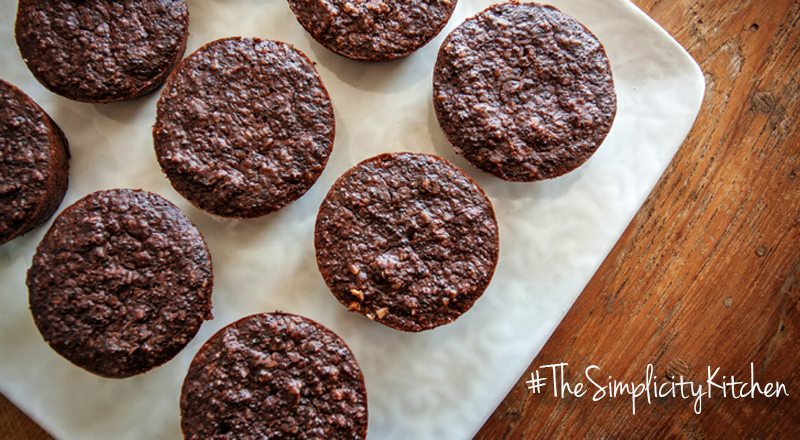What Is Your Digestion Trying To Tell You?

Today’s busy lifestyles have led to changes in our eating habits, and not necessarily for the better. We shovel in a quick bite of food at our desk, in the car or while standing over the kitchen counter. We eat late at night in front of the television, or we skip meals altogether. The food choices we make have changed too, often choosing packaged, processed convenience foods filled with hidden salt, unhealthy fat and sugar. These poor eating habits can have a direct effect on our bodies, and not just by giving us a stomachache.
A whopping 60 percent of our immune system is clustered around our digestive tract. Food allergies, bacterial imbalance, enzyme or acid deficiencies, yeast overgrowth, parasites and stress all negatively impact not just our digestion, but also our entire immune system. Painful conditions such as gas, bloating, heartburn, reflux, constipation, diarrhea, irritable bowel syndrome, Crohn’s disease and ulcerative colitis are all related to inflammation in the digestive system. And when our bowels aren’t moving properly, waste builds up in our body, creating toxicity and hindering our overall health.
Getting to the bottom of it
Let’s face it: few of us like to spend much time thinking about the contents of our toilet. But together with your general feelings in and around your gut, the frequency and quality of your bowel movements can provide a lot of information about your digestive health.
Use this simple questionnaire to determine whether your digestion could use some help — answer yes or no to the following questions:
- Do you have less than one bowel movement a day?
- Do you ever have stools that are black in colour?
- Have you ever noticed blood in your stool?
- Have you ever noticed mucous in your stool?
- Are your stools very narrow?
- Do you have a tendency towards loose stools or diarrhea?
- Do your stools sink?
- Do you experience excessive gas?
- Do you experience abdominal bloating?
- Do you have heart burn, indigestion, or reflux?
- Do you have recurring nausea?
- Do you have abdominal pain or cramping?
- Do you notice food in your stools (besides corn)?
If you answered yes to even one of these questions, your digestive system needs work.
What does healthy digestion look like?
Optimal bowel function is one bowel movement after each meal — ideally three times a day, but a minimum of once daily. Any less than that, and you’re constipated. Quality matters, as well. The perfect bowel movement be free of food particles and mucous, and not be overly narrow.
Mucous in or covering the stool, or narrow stools, is a sign of inflammation of the bowel. Strong-smelling gas could be caused by a deficiency of the enzymes necessary to properly digest protein or an imbalance of healthy gut flora (e.g., parasitic infection). If you wake in the morning with a nice flat stomach but look five months pregnant by day’s end, your digestion also needs help. Abdominal tenderness is yet another indication that your bowels could be inflamed and that you need to investigate your food choices, bacterial balance, enzymes and the state of your digestive-tract wall.
Some digestive problems are caused or exacerbated by adverse reactions to particular foods. Such reactions can impair the release of enzymes, the movement of your intestines and the walls of your GI tract. An extreme example is the ever-increasing Celiac Disease, an immune reaction to gluten that interferes with nutrient absorption in the small intestine. In other cases, the barrier of the intestinal wall can become permeable, allowing foreign substances to pass into the bloodstream, this is called Leaky Gut Syndrome. When this disruption occurs, inflammation, immune compromise or allergies may result and lead to hormonal imbalance.
What can you do to improve digestion?
1. First things first: you should remove the allergenic foods that can be the culprit behind your digestive disturbances. These are primarily wheat, gluten and dairy but are not limited to them. If there are certain foods that give you an adverse or less than desirable feeling afterward, try eliminating them too. After three weeks, begin to introduce each item one by one. If you find that your digestion goes downhill, you have found the cause.
2. Hydrate your system! Drink 2-4 litres of clean, filtered water each day, and try some digestive soothing teas such as; ginger, peppermint or chamomile, which you can sip on throughout the day. Try pairing your tea with a gut pleasing snack, like my gluten-free chia oat bombs (recipe below).
3. Increase your fibre intake by increasing your vegetable intake! Up your leafy greens, your root vegetables like sweet potatoes and carrots, and include plenty of power seeds like chia, flax or hemp hearts.
4. Consider these supplements for digestive health:
- A probiotic supplement: Healthy bacterial balance in our digestive tract is easily affected by poor dietary habits and by the use of medications, such as birth control pills, corticosteroids and antibiotics. The benefits of probiotics include healthy digestion, regular bowel function and immunity. Look for a supplement with 10 to 15 billion cells per capsule and take it on rising, before breakfast. Make sure you find this supplement in the refrigerator, and not on the shelf. A good quality probiotic supplement will need to be refrigerated.
- Essential fatty acids: These help lubricate the bowel. If you choose a liquid form, one tablespoon per day is sufficient. Good brands include Udo’s Choice, Essential Balance, Nordic Naturals, Carlson, Nutra Sea or Omega Joy by Genuine Health. Liquid forms of fish oil supplements should be kept in the fridge. If you choose capsules, take 2–4 capsules a day with food. You can also add these fats into your smoothies if you would prefer to swallow less pills.
Chia Oat Bombs (Gluten-Free)
- 2-cups organic gluten-free oats OR quinoa flakes
- 5 tbsp Chia seeds
- 6 tbsp cacao powder
- ½ cup Rainforest Nut butter (or nut butter of choice)
- 1 cup full-fat canned coconut milk
- ¼ cup dark chocolate chips
- 4 tbsp honey
- 1 tsp vanilla
- 1 tsp sea salt
- 1 tsp cinnamon
- Preheat oven to 350°F.
- Soak your chia seeds in ¼ cup water for 4-5 minutes.
- Grease your muffin tins or use paper inserts.
- In a glass bowl mix your oats (or quinoa flakes), cocoa powder, nut butter, coconut milk, chocolate chips, honey, vanilla, salt, cinnamon and chia seed mixture. Combine well.
- Using an ice cream scoop to scoop into your greased pan.
- Bake for 22-28 minutes using a wooden toothpick to check.
